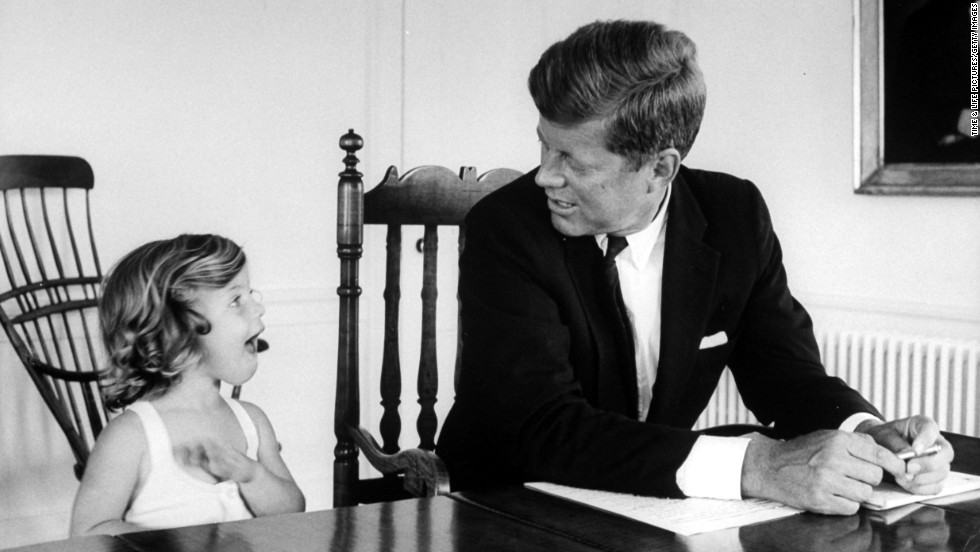Has the enduring legacy of the Kennedy family been shadowed by a silent battle? Caroline Kennedy's unwavering spirit shines despite her grappling with rheumatoid arthritis, sparking conversations about health, resilience, and the unseen challenges faced even by those in the public eye.
The scrutiny that comes with being a Kennedy means every aspect of Caroline Bouvier Kennedy's life, born November 27, 1957, is subject to intense public observation. From her early years as the daughter of President John F. Kennedy and Jacqueline Kennedy Onassis, to her distinguished career as an author, attorney, and diplomat, including her ambassadorships to Japan (2013-2017) and Australia (2022-2024), Caroline has remained a prominent figure. However, beyond her professional achievements, it's her health journey, specifically her battle with rheumatoid arthritis, that has drawn considerable attention.
| Caroline Kennedy: Biographical and Professional Information | |
|---|---|
| Category | Details |
| Full Name | Caroline Bouvier Kennedy |
| Date of Birth | November 27, 1957 |
| Place of Birth | New York City, New York, USA |
| Parents | John F. Kennedy (President of the United States), Jacqueline Kennedy Onassis |
| Education | Radcliffe College (BA), Columbia Law School (JD) |
| Profession | Author, Attorney, Diplomat |
| Notable Positions |
|
| Known For |
|
| Health Condition | Rheumatoid Arthritis (diagnosed in 1999) |
| Personal Life | Married to Edwin Schlossberg; three children: Rose, Tatiana, and John (Jack) |
| Website | JFK Presidential Library & Museum |
Caroline Kennedy's candidness about her rheumatoid arthritis has brought much-needed awareness to this chronic autoimmune condition. Rheumatoid arthritis, characterized by inflammation affecting joints such as fingers, hips, lower back, and knees, poses significant challenges. Her diagnosis in 1999, following a Colorado camping vacation, marked the beginning of a journey managing the disease's debilitating effects.
- 2025 Telugu Movies Rules Howto Download Google Discover
- Watch Vega Online Streaming Where To Watch More
The reality of rheumatoid arthritis is one of constant management. For Caroline Kennedy, this has meant grappling with severe leg pain and mobility issues. The disease's impact isn't limited to physical discomfort; it also includes symptoms like fatigue and difficulty concentrating. These signs, often developing subtly, can be challenging to recognize in their early stages, underscoring the importance of regular health screenings and proactive monitoring.
It's crucial to understand the multifaceted nature of this illness. Rheumatoid arthritis isn't merely joint pain; it's a systemic disease that can affect various organs. The exact causes are still being researched, but it's believed to involve a combination of genetic predisposition and environmental factors. The body's immune system mistakenly attacks the synovium, the lining of the joints, leading to inflammation, pain, and potentially joint damage. Over time, this can result in chronic pain, decreased mobility, and a reduced quality of life.
The challenges of living with rheumatoid arthritis extend beyond the individual. Families and caregivers also play a crucial role in providing support and understanding. Educating oneself about the condition and its impact can foster empathy and facilitate better communication. Practical assistance, such as helping with daily tasks and providing emotional support, can significantly improve the patient's well-being.
- Hdhub4u Your Guide To Free Movies Risks Alternatives Latest
- Watch Now Movierulz Kannada Movies Page 1 Latest
Caroline Kennedy's approach to her health challenges has been characterized by a proactive and positive mindset. She emphasizes early detection and regular health screenings as essential for managing chronic conditions. By prioritizing her health and seeking timely medical care, she demonstrates a commitment to minimizing the disease's impact on her life. This proactive approach serves as an inspiration to others facing similar challenges.
In addition to medical treatments, Caroline Kennedy has embraced a holistic lifestyle to manage her rheumatoid arthritis. This includes incorporating healthy eating habits and regular exercise into her daily routine. A balanced diet rich in anti-inflammatory foods, such as fruits, vegetables, and omega-3 fatty acids, can help reduce inflammation and alleviate symptoms. Regular exercise, tailored to her abilities, helps maintain joint mobility, strengthen muscles, and improve overall physical function.
The importance of early detection cannot be overstated. The sooner rheumatoid arthritis is diagnosed, the sooner treatment can begin. Early intervention can slow the progression of the disease, prevent joint damage, and improve long-term outcomes. Individuals experiencing persistent joint pain, swelling, or stiffness, especially if accompanied by fatigue or other systemic symptoms, should consult a healthcare professional for evaluation.
While there is no cure for rheumatoid arthritis, various treatment options are available to manage the symptoms and improve the quality of life. These include medications such as disease-modifying antirheumatic drugs (DMARDs), biologics, and corticosteroids. Physical therapy, occupational therapy, and lifestyle modifications also play crucial roles in managing the condition. A personalized treatment plan, developed in consultation with a rheumatologist, is essential for optimizing outcomes.
In a video posted by her son, Jack, Caroline made accusations against Bobby, calling him a predator addicted to attention and power. This video surfaced on January 28, just one day before Bobby's birthday. Such statements underscore the complexities and potential strains within families, even those as prominent as the Kennedys. These personal dynamics, while separate from her health journey, add another layer to the public's perception of Caroline Kennedy.
The observation that Caroline Kennedy appears more wrinkled than her cousin, who is older, has sparked speculation. While nothing definitively suggests she is unhealthy based solely on appearance, some attribute this to lifestyle factors or, as some suggest, the substances that both RFK and Caroline have put into their bodies over the years. This highlights the public's tendency to scrutinize the physical appearance of public figures, often without full knowledge of their health histories or personal choices.
It's worth noting that Caroline Kennedy urged the Senate to reject her cousin, Robert F. Kennedy Jr.'s, confirmation as Secretary of Health and Human Services. In a scathing letter, she criticized his qualifications and suitability for the role. She referred to him as not just unqualified but a "predator," highlighting the gravity of her concerns. This public disagreement reveals deeper divisions within the Kennedy family regarding political and health-related ideologies.
Despite the challenges posed by rheumatoid arthritis, Caroline Kennedy remains an active and influential figure. Her career as a diplomat, author, and attorney reflects her commitment to public service and intellectual pursuits. She has served as the United States Ambassador to Japan and Australia, demonstrating her dedication to international relations and diplomacy. Her literary works showcase her intellectual curiosity and her ability to engage with complex issues. Her contributions to society extend beyond her personal struggles, making her a role model for many.
Chronic illnesses, like Caroline Kennedy's, require careful monitoring and proactive management to minimize their impact. This includes regular check-ups with healthcare professionals, adherence to prescribed medications, and lifestyle adjustments to support overall health and well-being. A multidisciplinary approach, involving physicians, therapists, and other healthcare providers, can help optimize treatment outcomes and improve the quality of life.
Caroline Kennedy's resilience and positive mindset are admirable. She has approached her health challenges with grace and determination, inspiring others to do the same. Her story reminds us that chronic illnesses do not define a person; they are merely one aspect of a complex and multifaceted life. By embracing a proactive and holistic approach to health, individuals can manage their conditions and live fulfilling lives.
The personal accusations made in a video posted to YouTube by Caroline Kennedy's son, Jack, brought additional public attention to the family. In this video, Caroline accused her cousin Robert F. Kennedy Jr. of being a "predator" and of being addicted to attention and power. These claims, made just before Robert F. Kennedy Jr.'s birthday, added fuel to an already complex narrative surrounding the Kennedy family and their internal conflicts. These types of public disagreements underscore the challenges faced by prominent families and the scrutiny they often endure.
The broader context of Caroline Kennedy's life reveals a continuous navigation of public and private spheres. As the only surviving child of President John F. Kennedy and Jacqueline Kennedy Onassis, she has lived under intense media scrutiny from a young age. Her decision to pursue a career in public service, first as an author and attorney, and later as a diplomat, reflects a desire to contribute meaningfully to society, despite the inherent challenges of maintaining a private life in the public eye.
Beyond her professional achievements, Caroline Kennedy's role as a mother is another significant aspect of her life. She and her husband, Edwin Schlossberg, have three children: Rose, Tatiana, and John (Jack). Balancing a demanding career with the responsibilities of motherhood is a challenge many women face, and Caroline Kennedy's experience highlights the complexities of navigating these dual roles while also managing a chronic health condition.
The impact of rheumatoid arthritis on Caroline Kennedy's life is not limited to physical symptoms. Chronic pain and fatigue can affect mental and emotional well-being, leading to stress, anxiety, and depression. It's essential for individuals with chronic illnesses to prioritize their mental health and seek support from therapists, counselors, or support groups. Addressing the emotional challenges associated with chronic illness is crucial for maintaining overall well-being and quality of life.
In addition to medical treatments and lifestyle modifications, social support plays a vital role in managing rheumatoid arthritis. Connecting with others who have similar experiences can provide valuable emotional support, practical advice, and a sense of community. Support groups, both in-person and online, offer a safe space to share experiences, ask questions, and learn from others who understand the challenges of living with a chronic illness.
Caroline Kennedy's journey with rheumatoid arthritis underscores the importance of empathy and understanding. Chronic illnesses are often invisible, and individuals may suffer in silence due to the stigma associated with these conditions. By raising awareness and promoting open conversations about chronic illnesses, we can create a more supportive and inclusive society for those who are affected.
Caroline Kennedy's story also highlights the importance of advocating for research and funding for chronic illnesses. Continued research is essential for developing new and more effective treatments, improving diagnostic tools, and ultimately finding cures. By supporting research initiatives, we can contribute to a better future for individuals living with chronic conditions.
While friends have expressed concerns about her mobility and potential for paralysis, it's crucial to rely on accurate and verified information rather than sensationalized reports. Sensational headlines like "Friends fear former first daughter will be paralyzed!" can create unnecessary anxiety and distress. Instead, it's important to focus on Caroline Kennedy's own statements and the information provided by reputable medical sources. As of the latest available information, Caroline Kennedy is still alive and well, actively managing her condition.
Caroline Kennedy's decision to speak out against her cousin, Robert F. Kennedy Jr.'s, nomination as health secretary demonstrates her commitment to public health and her willingness to take a stand on issues she believes in. Her actions reflect a deep sense of responsibility and a dedication to upholding the values she believes are essential for public service. This episode underscores the importance of holding public officials accountable and ensuring that they are qualified and committed to serving the public interest.
Her legacy as a diplomat is further solidified by her service as the U.S. Ambassador to Australia. This role, following her ambassadorship to Japan, highlights her continued commitment to international relations and her ability to navigate complex diplomatic challenges. Her experience in both countries provides valuable insights into the nuances of global politics and the importance of building strong relationships with allies.
Caroline Kennedy's multifaceted life, encompassing her roles as a mother, author, attorney, diplomat, and advocate, showcases her resilience, determination, and commitment to public service. Her journey with rheumatoid arthritis underscores the importance of proactive health management, emotional well-being, and social support. By sharing her experiences and advocating for awareness, she inspires others to live fulfilling lives despite the challenges of chronic illness.
Explore the details surrounding Caroline Kennedy illness and gain insights into its causes, symptoms, and treatment options. Learn more about her life and legacy. Her story is a testament to the power of resilience and the importance of advocacy in the face of health challenges.



Detail Author:
- Name : Rogers Deckow
- Username : uklocko
- Email : fahey.marianna@upton.biz
- Birthdate : 1977-06-02
- Address : 288 Jessie Fork North Lelahfort, LA 43703-8953
- Phone : 1-830-622-3910
- Company : Lebsack Ltd
- Job : Logistician
- Bio : Tempore natus quos reprehenderit corporis natus quia. Labore sint qui quod pariatur. Quos ut laborum est quia vero ut.
Socials
tiktok:
- url : https://tiktok.com/@fritschr
- username : fritschr
- bio : Sed a et mollitia saepe quo.
- followers : 2624
- following : 1581
instagram:
- url : https://instagram.com/reganfritsch
- username : reganfritsch
- bio : Voluptatibus velit qui voluptas est odit. Et libero et doloremque id est deleniti cumque autem.
- followers : 1993
- following : 1252
twitter:
- url : https://twitter.com/fritsch2000
- username : fritsch2000
- bio : Sit vitae labore debitis doloremque commodi voluptas. Non molestiae et a et. Pariatur aliquid nulla omnis. Ea tempore quo molestias blanditiis omnis.
- followers : 5116
- following : 830